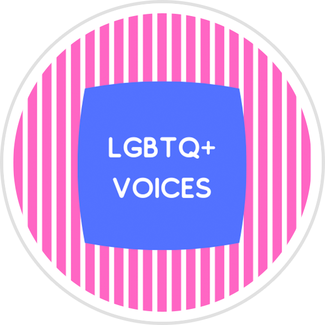
Just last year, police interrupted Ulaanbaatar’s Equality Walk and harassed participants. Zorig notes that police in Hanzo’s centrally located Chingeltei District tend to be more familiar with the LGBT community-and therefore more accepting-than police in more far-flung districts. Because of their potent social influence, their acceptance informed wider, albeit measured, public acceptance. Members of Mongolia’s artistic elite, including the rock band The Lemons, frequented the bar. “People were like, ‘What the fuck is that?’”ĭuring Hanzo’s three-year existence, local police who interacted with Zorig and his clientele on a weekly basis gradually warmed to the bar. “Back in 2012, it was not cool,” Zorig says. Police frequently raided the bar and physically assaulted club-goers. He opened the dance club Hanzo, in mid-2012, and hosted drag shows, go-go dancing and karaoke. He knew that there were enough people living in the shadows to constitute a clientele. “So I thought, ok, let me just create that.” Gay men could meet at “secret parties,” but Zorig said he was tired of hiding. “Coming back to Mongolia but not having a place to party is kind of sad,” he says. There, Zorig worked as an investment banker for 15 years “having a nice time enjoying my gay life” before moving back to Mongolia in 2012. Zorig “heard stories” about the existence of gay people growing up, but didn’t meet another gay man until he moved to Japan at 19. None of the crimes were initially reported to “for fear of secondary victimization by police.” In 2009, the ultra-nationalist neo-Nazi group Dayar Mongol kidnapped three transgender women in broad daylight and took them to a cemetery where they were beaten and sexually assaulted. In 2001, a lesbian woman was abducted, stabbed and raped by two men after the funeral of her girlfriend, who had committed suicide. In 2010, Mongolia’s newly formed LGBT center reported on over a dozen hate-motivated instances of harassment, violence, and rape before the UN. Now, same-sex teen suicides crop up in the news with alarming frequency. In the ‘90s, a famous and grisly incident disturbed the tiny country, when a Mongolian pop singer who was rumored to be gay was found beheaded in his apartment. Zorig even recently set up an LGBT Corner message board (and three dildos) to “make the message wide and open.”įewer than 18% of Mongolia residents have internet access, and until recently, information about anything related to gay life was nearly impossible to come by. LED disco lights fling primary-colored-flecks on the revelers. The blinds are drawn tight, but the atmosphere is open and casual. Several Mongolian men, three Europeans, and one elegantly dressed trans woman chat and make merry. The first, City Life, lasted just one fun but lonely summer in 2004. Several Mongolian gay bars predate d.d/h.z., but they were forced to close due to resistance from the neighborhood or would-be clients steering clear, for fear of getting beaten up or harassed. Bullying at school remains prevalent, labor discrimination is rife, police hostility abounds and healthcare and social services are frequently withheld. For many Mongolians, gay visibility is seen as an invasion, a foreign influence corrupting traditional life. Gay life in Mongolia is still far from easy. Until 1989, homosexuality was illegal and punishable by imprisonment.
When the country was under Soviet rule from 1921 to 1990, all non-heteronormative expression of sexuality was taboo. Outside the city, the steppes are home to some of the world’s last nomadic people.

In Mongolia, it isn’t easy for a gay bar to fly under the radar, even in the center of Ulaanbaatar, the country’s biggest city, home to more than a third of Mongolia’s total population of 2.8 million. “It looks bright and sweet, but it’s difficult to swallow.” “It’s like gay life in Mongolia,” he says. When Zorig returns, he brings us a frozen drink with Day-Glo layers. He gives my companion a disputable “reading,” and dashes away to tend to friends and customers, explaining, “This place is like my living room.” At the only gay bar in the most sparsely populated independent country in the world, Zorig Alima tells me he’s a “penis shaman.” The proprietor of d.d/h.z says he can confidently predict men’s penis sizes and sexual predilections.


 0 kommentar(er)
0 kommentar(er)
